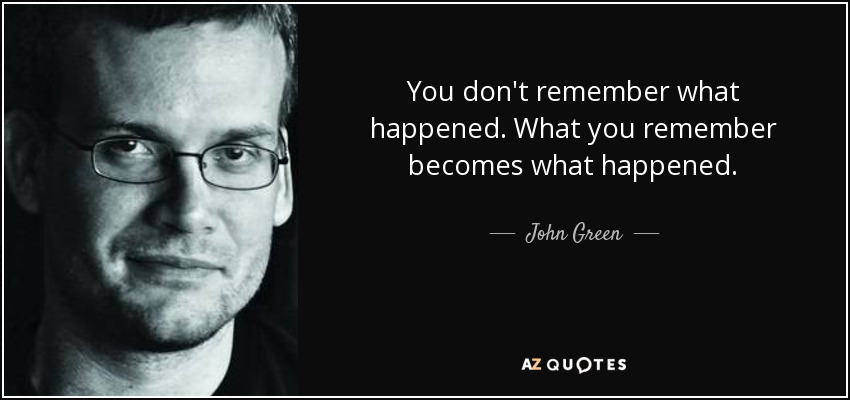Modern Trauma
 person
Don't believe everything you thinkThe liminal space Veteran
person
Don't believe everything you thinkThe liminal space Veteran
For a while I've had a sort of instinctive reaction against some of the ways trauma is being used and talked about today. This 5 minute segment of The Psychology Podcast gets to the heart of my objection. Its not that trauma doesn't exist, its that it gets presented in a way that traps people in a victim narrative, rather than teaching them to grow and learn.
...By going deep into that (trauma) as a victim, they're disempowering themselves and that's a problem, you know. Because then they're not accessing their inner core strength and belief in themselves...
In addition to that a quote of the day on the Insight Timer app came up that related to this. 
By telling yourself the story that you've been traumatized rather than you've overcome or grown creates a narrative in your mind of what the world is like. A specific example that sticks in my mind was in the Dan Harris interview with Gabor Mate, where he talks about the trauma of his youth leading him to strive and become a therapist. Its a true story, but is that story he tells himself more true than a story of gratitude about your success in life and a desire to let go of the suffering that striving causes any less true? And which story in the present lends itself to a happier more meaningful state of mind?





Comments
I generally agree with the power and resilience approach as opposed to the victim approach.
Has your trauma made you stronger?
No….its made me way funnier. 🤣🤣🤣😎
Well, there is trauma and Trauma. Some traumas are so strong they shape people’s lives and intrude into the present. What most people have are background traumas, also important because they represent the most traumatic experiences of your youth but not intrusive. Both can be worked with.
I dislike the term ‘power’ because it’s actually not that, it just feeds the ego. I think presence is a better word, or perhaps groundedness.
@Vastmind
We can traumatise or dramatise or otherwise engage. Not everyone can-cans. That is true. So avoidance is a strategy.
Fortunately for those requiring a daily reboot, I have steel toe caps and am always willing to kick anyone, especially myself ...
It is this sense to know which of the 3 jewels to kick back into coherence, that makes for a flexible option ... ever-changing ...
I guess I think a different term for the small traumas of life would help. Like discomfort or anxiety, etc. Using the same term for meaningfully different things waters down the more severe traumas, it also elevates the stories we tell ourselves about the degree of hurt we experience.
In my metta practice I added a phrase, may all beings be confident, grounded and resilient in the face of life's hardships. I hadn't thought to use the word power, but all of those imply a sort of personal capacity. Though perhaps like the word trauma, power has different connotations depending on how its used and a different word would be better. How do you feel about empower? Or is that too close? Strength? Some connotation of having confidence that one has the internal resources to engage and overcome difficulty.
I agree with your general argument @person. I've also added similar wishes to my metta-practice. Much suffering can be avoided if we are strong and resilient and resourceful. You writing about these things makes me think you've adopted a stronger mindset yourself. Good for you.
@person … Have u read
Spacious Minds:
Trauma and Resilience in Tibetan Buddhism
https://www.cornellpress.cornell.edu/understanding-resilience-in-tibetan-buddhism/
Disclaimer…I haven’t yet. It was given to me last year and is on my to-do list.
I haven't read it. The three brief questions from the link reflect what I've heard in my time in TB though. I think I'll see if she is on a podcast somewhere to hear more of what she has to say.
ETA: There's a Sarah Lewis olympian who takes front and center in the search but I found episode 5 of the Noble Mind podcast.
On the link, if you scroll down,under the questions and under the book photo there’s a 20 min podcast conversation, did u see that?
I listened to the podcast today. She's part cultural anthropologist, so there was much discussion of some of the cultural differences between Tibetans and the west.
My personal journey listening to the interview was interesting to me. At first I remembered many of the things I really loved about TB, and then when they started comparing attitudes to western ones I realized how much I have adopted and internalized some of those views. I was heavily involved in my early 20s, a pretty formative time. Then I thought, since then I've listened and read a lot of western people espousing very similar attitudes and realizing since leaving TB and looking for a more western approach I've probably selected for those who hold similar views. Then I'm wondering when they were talking about a "western" mindset just how western is it really. Is the western mind really so homogenous? Are they really just talking about the cultural world they inhabit in particular? With my general interest in science there's a known phenomenon in the scientific community that the vast majority of psychological and sociological studies have been done on young, western, college students and probably doesn't reflect the larger human experience very well.
Anyway, rambling aside, I thought she was interesting and liked what she had to say on the matter.